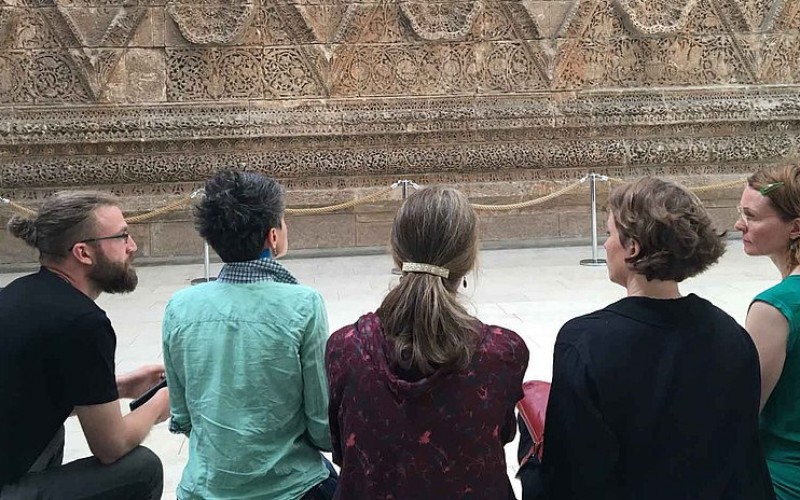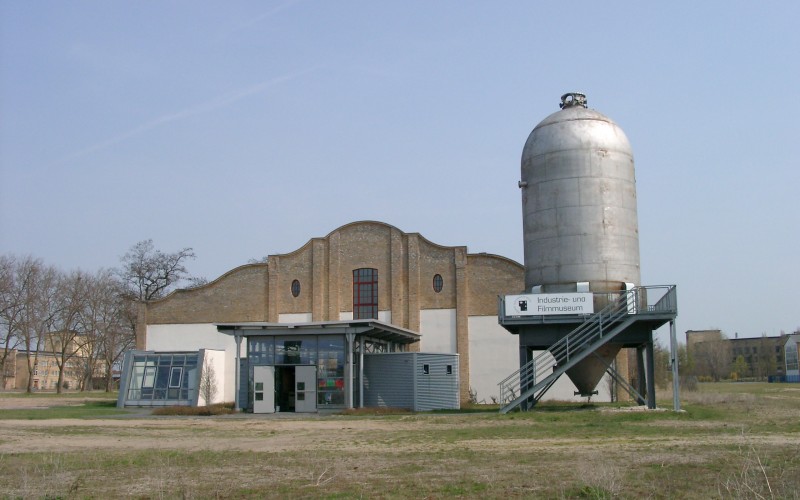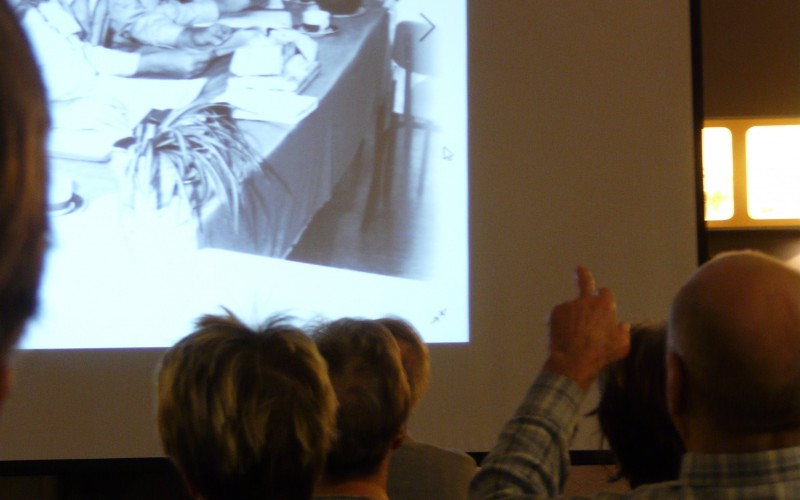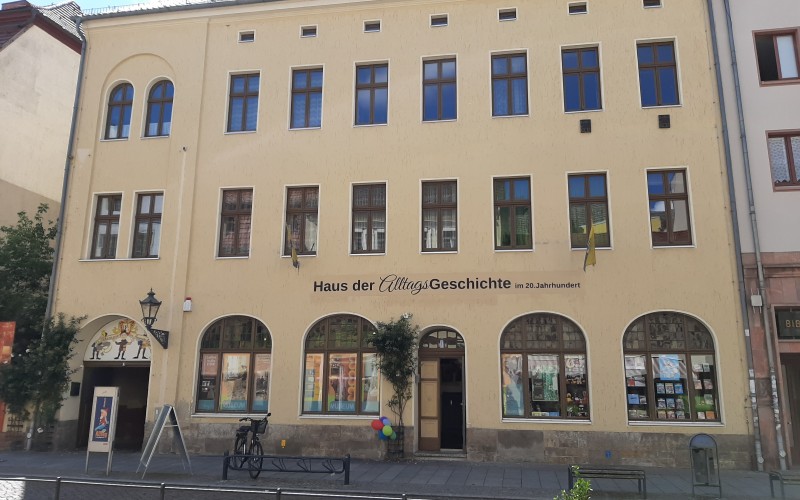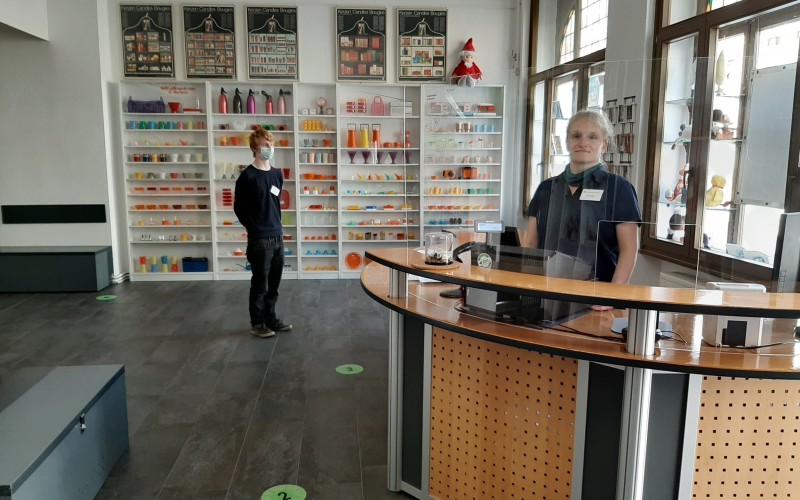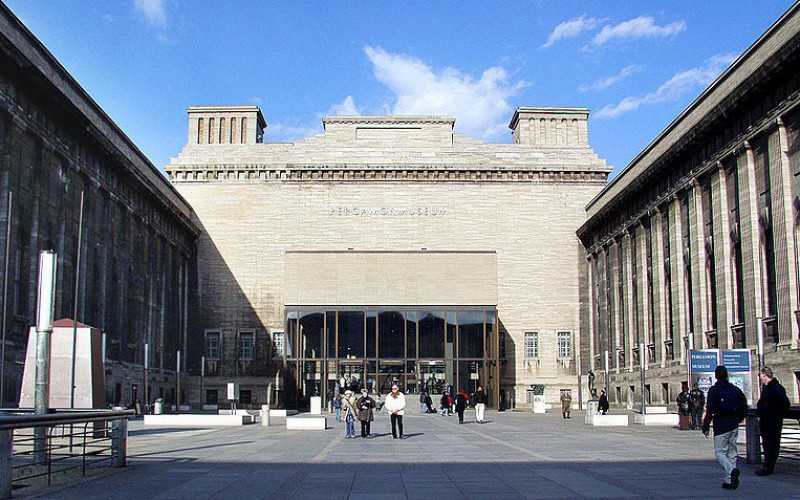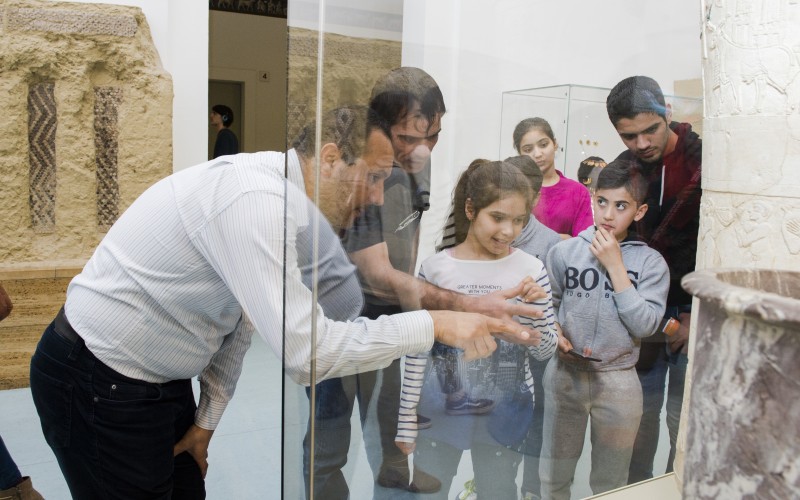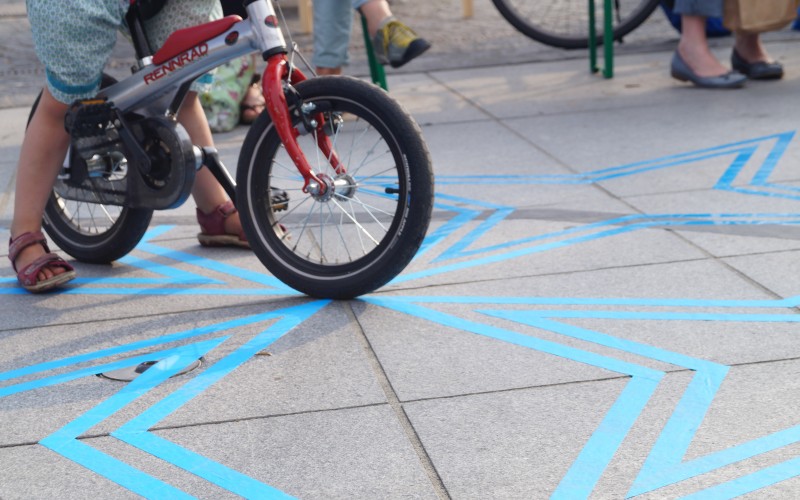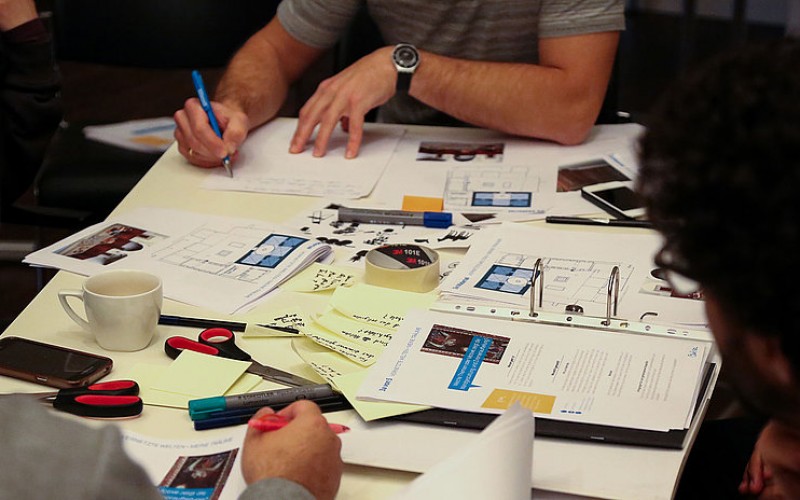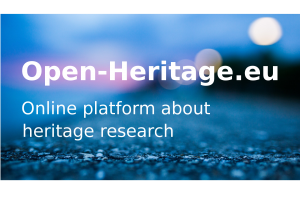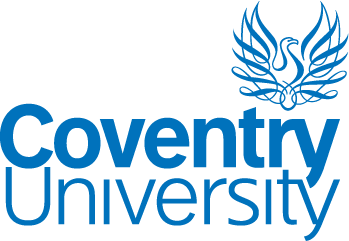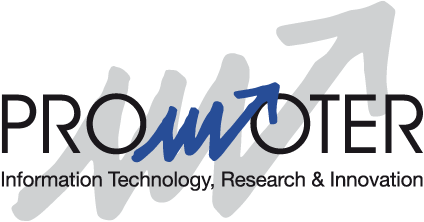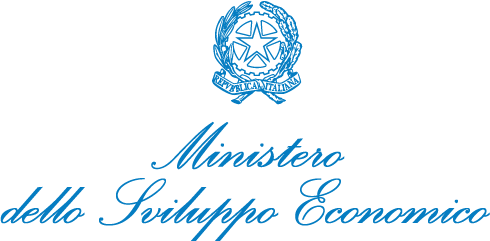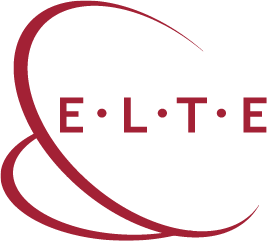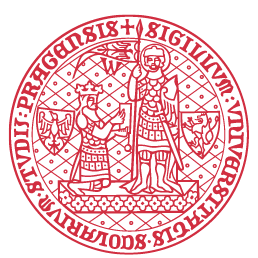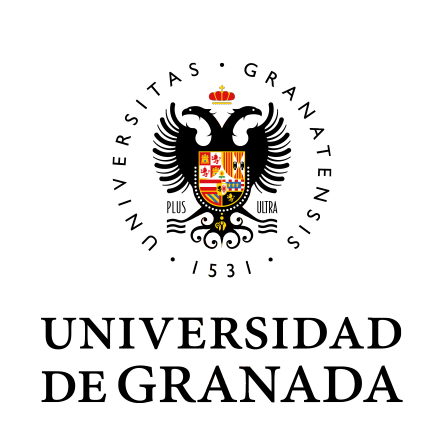This page is available in Deutsch
Germany
Task Leader: SPK (DE)
This pilot aimed to gain a broader understanding of the participatory activities in cultural heritage institutions. Implementation of initiatives and their framework conditions were analysed, as well as the importance and impact of collaborative and participatory interaction between institutions, participants and the environments.
Special attention was paid to the complex relationships between institution, audience, society and the constantly changing expectations of museums. Social cohesion and the relevance of cultural heritage, two key elements of REACH, were particularly considered. This led to recommendations to improve the scope of action of museums and to strengthen their societal role and benefits.
Implementation
Three museums were included in this survey: the Industrie- und Filmmuseum Wolfen (Industry and Film Museum Wolfen) in Bitterfeld-Wolfen, the Haus der Geschichte (House of History) in Wittenberg and the Museum für Islamische Kunst (Museum of Islamic Art) of the Staatliche Museen zu Berlin (SMB-PK). Two of these are smaller institutions, mainly oriented locally, and one is larger, which primarily addresses an international audience.
Results
These three examples demonstrate a wide range of participatory initiatives across different museum areas, such as exploration of the contents of collections, contributions from contemporary witnesses, co-creation of learning materials and exhibitions, organisation of interactive / dialogic guided tours and other forms of exchange, as well as government volunteer programmes.
Historico-cultural collections have great value for communities and societies. They can be used as bridges between the past, present and future, as well as to local environments and distant regions, and people and their ideas, experiences, memories, narratives. This way, cultural heritage can support reflection and dialogue about challenging topics, and develop new responses and intellectual, emotional and social impulses.
Shared activities widen everyday personal horizons. They provide opportunities to encounter differences, ambiguities and heterogeneities, and to develop the ability to navigate them. This fosters acceptance of challenging topics and the willingness to look for solutions together. In addition, joint interactions contribute to self-esteem as active partners within an exchange and bring social support and stability to the community.
Through interaction and collaboration with audiences, museums become a committed partner in cultural work, offering a place of meaningful encounter as well as entertainment. The public can become a respected and appreciated part of discovering, creating and presenting content, regardless of their social, cultural and economic background.
Museums show a desire to overcome barriers, connecting very different milieu. As a reliable and responsive partner and reference point for communities and societies, they encourage cross-sector interaction. Participatory activities far exceed the traditional core practices of museums. However, many excellent initiatives are implemented only within a fixed time-limited project framework programme, which strongly determines / limits the scope for action and hinders sustainable development.
Three important elements have been identified as important for the development of museums as meeting points of multiple relevance and to promote a stronger appreciation of cultural heritage:
1. Involvement of the museum’s constituent community in (decision-making) processes – including the communities of origin, audiences, neighbourhood, staff and politicians
2. Diversification, extension, transparency and network at different levels – concerning partners and addressees; topics, approaches, methods and media as well as working fields and procedures
3. Long-term and flexible structures – including funding and administrative procedures.
The pilot demonstrated participatory engagement as a cross-sector undertaking that requires a high degree of collaboration within the institutions and with external partners. Museums want to be active for the public and with the people. Citizen involvement requires understanding, interest and support from museum staff, politicians and, above all, the general public itself. This is a major societal task that museums cannot and should not fulfil alone.
Detailed information are available in the Deliverable D5.3-Institutional-heritage-pilot-results.pdf
Events
- 21 June 2018, Berlin (Germany). Conference: "Visions for Cultural Heritage and Digital Platforms"
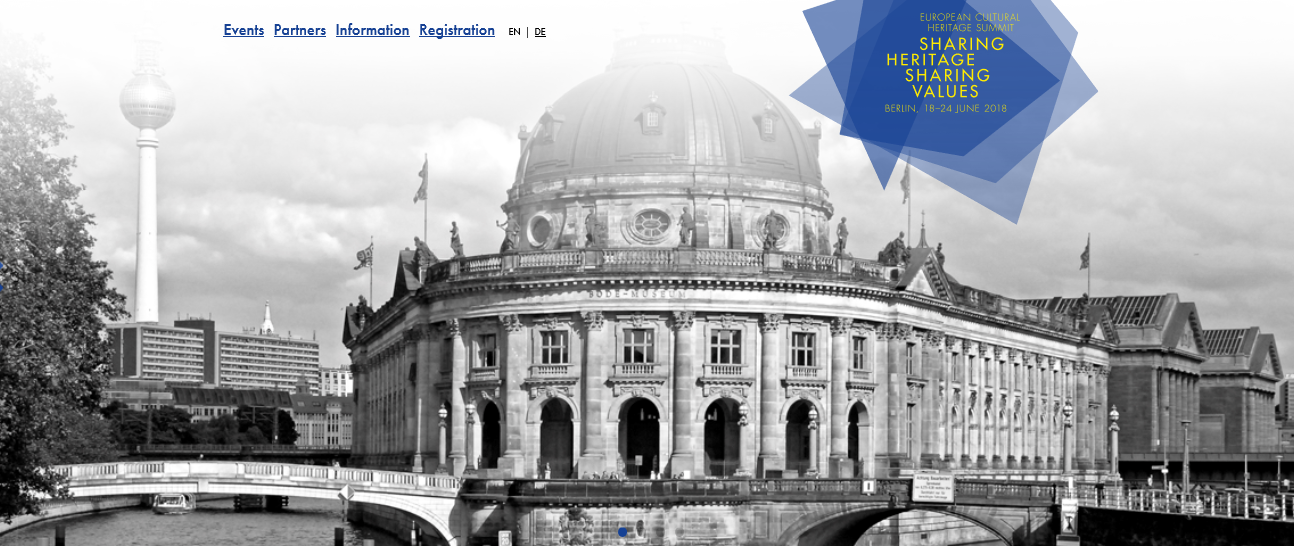 In the framework of the European Summit for Cultural Heritage (Berlin, 18-24 June, 2018), REACH Project was presented at the conference dedicated to digital- cooperation platforms and factual data. The event is co-organized and co-hosted by the Stiftung Preußischer Kulturbesitz (Prussian Cultural Heritage Foundation, SPK). Read more
In the framework of the European Summit for Cultural Heritage (Berlin, 18-24 June, 2018), REACH Project was presented at the conference dedicated to digital- cooperation platforms and factual data. The event is co-organized and co-hosted by the Stiftung Preußischer Kulturbesitz (Prussian Cultural Heritage Foundation, SPK). Read more

